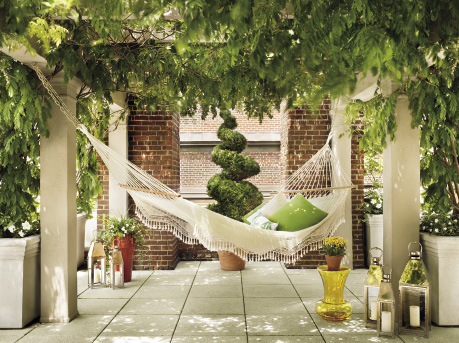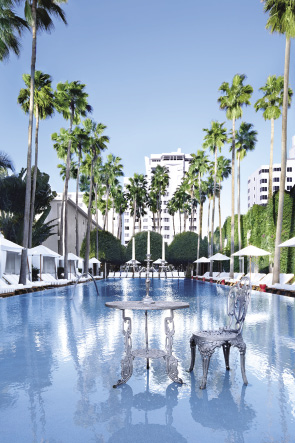- Home
- Media Kit
- Current Issue
- Past Issues
- Ad Specs-Submission
- Ad Print Settings
- Reprints (PDF)
- Photo Specifications (PDF)
- Contact Us

![]()
ONLINE

The Morgans Model
Editors’ Note
Daniel Flannery has held his current post since joining the company in April 2011. Prior to this, Flannery was the Vice President and Managing Director for Marriott International, Inc. from January 2009 to April 2011. Earlier, he spent seven years at The Ritz-Carlton Hotel Company as its General Manager and Area Vice President for New York and Boston from September 2002 to January 2009. Flannery served on the executive committee and board of directors for the Tisch Center for Hospitality, Tourism, and Sports Management at New York University as well as the Dean’s Advisory Council for the Smith School of Business at the University of Maryland, and is also a distinguished lecturer for the New York University Brener Lecture Series. He served on the board of directors for the Hotel Association of New York City from 2007 to 2009. Flannery received a Bachelor of Science from the Smith School of Business at the University of Maryland.
Company Brief
Morgans Hotel Group Co. (www.morganshotelgroup.com; NASDAQ: MHGC) is widely credited as the creator of the first “boutique” hotel and a continuing leader of the hotel industry’s boutique sector. The group operates the Delano in South Beach and Marrakech; Mondrian in Los Angeles, South Beach, and New York; Hudson in New York; Morgans and Royalton in New York; Shore Club in South Beach; Clift in San Francisco; Ames in Boston; Sanderson and St Martins Lane in London; and a hotel in Playa del Carmen, Mexico. Morgans Hotel Group has ownership interests in several of these hotels and has other property transactions in various stages of completion, including Delano properties in Las Vegas, Nevada, Cesme, Turkey, and Moscow, Russia; Mondrian properties in Marrakech, Morocco, Istanbul, Turkey, Doha, Qatar, London, England,and Nassau, The Bahamas; and a Hudson in London, England. Morgans Hotel Group also owns a 90 percent controlling interest in The Light Group, a leading lifestyle food and beverage company.
How has Morgans continued to be successful during these turbulent times?
We have four hotels in New York and we’ve been a bit more successful there because they’re at varying price points. We’ve also spread our exposure with two hotels in London, three in South Beach, and properties in L.A., San Francisco, Boston, and Marrakech.
In addition to being a management company creating value based on fees generated, we’re transitioning from being an owner/operator to a full-fledged lifestyle management company. So we’re selling assets at a time where they’re trading at decent levels and converting that equity into key money or guarantees so new deals can get done.
In 2013 and 2014, we intend to have eight or ten new hotels under our management, and once those open they’ll be generating strong revenue streams.

Sky Terrace at Hudson New York
Is there a common link that defines a Morgans property?
Morgans Hotel Group understands that the hospitality industry is shifting and that hotels are focused on more than nice rooms and quality service; it’s about an experience and social spaces that invite and encourage guests to engage and interact.
Our hotels feature cutting-edge design, art, and technology, making Morgans Hotel Group a 21st century hub of culture, entertainment, and activity. As we expand our portfolio, we are focusing on cultivating and expanding upon three strong, complimentary brands: Delano, Mondrian, and Hudson.
On the very high end, Delano evolved as a luxury competitor – we have a clientele that expects a certain level of service, staffing, and amenities. Mondrian is our high-energy urban hotel brand that draws forward-thinking clientele, while fostering social engagement.
Hudson, our most affordable brand, is still one of the hotels recognized for what we can do with limited guest room space, building upon the concept of lobby and public spaces as social hubs.
Everybody looks at RevPAR, but Morgans Hotel Group has several bars that do $5 to $7 million a year in revenue or more. So it’s a combination of those things that makes the model work well, combining market share premiums with superior F&B revenues.

The pool at Delano South Beach
Do you worry about managing the growth when it’s happening so quickly?
Absolutely. One of the reasons we have yet to develop properties and partnerships in Asia and Latin America is that we are so heavily concentrated with opportunities throughout Europe and the Middle East.
We’re trying to keep our team lean and control overhead until these hotels start generating fees and revenue for us, but we need enough people on the design, development, and operations teams to open them successfully.
Any successful hotel operator will tell you not to underestimate the power of a strong culture, and Morgans has a culture and a way of doing business that is unique.
As we open new properties, the selection process for employees and our delivery of training in the pre-opening phase is important for us in terms of establishing our level of service with the people who will be providing it.
How has Morgans differentiated itself on the food and beverage front?
It’s challenging because it’s expensive – you go into it knowing the cost of doing business will be higher than in other cities; and you won’t make money at those cost levels unless you can drive strong restaurant, bar, and banquet volume. We don’t have a lot of meeting space in our hotels so what we do with restaurants and bars is key.
However, every restaurant operator will take our call and talk to us about doing deals. The appeal for them is the clientele that our hotels attract: tastemakers from the world of fashion, art, sports, and music.
Also, restaurant operators like to be affiliated with a property that generates nightlife business because one helps the other.
We’ve been successful at taking some internal talent and developing it along with partnerships with great third-party operators.
How do you focus on your overall product when there is much talk about the lounge and nightlife aspects of your properties?
Some of the criticism of our segment of the industry is well deserved. There have been many people who have come into the boutique hotel world with no hotel experience. They had a fashion or marketing background but wanted to start a hotel brand, and they were more focused on the design and programming of the space and less experienced with how to build a hotel to be functional or how to train employees to deliver consistent service.
Now there are great operators that can create a cool, unique, original, authentic, and physical experience that is interesting and different and back it up with much better service execution.
It’s a simple business – smile, use the guest’s name, look him or her in the eye, introduce yourself, keep the place clean – it’s about getting people excited about what they’re doing and why they’re doing it.•